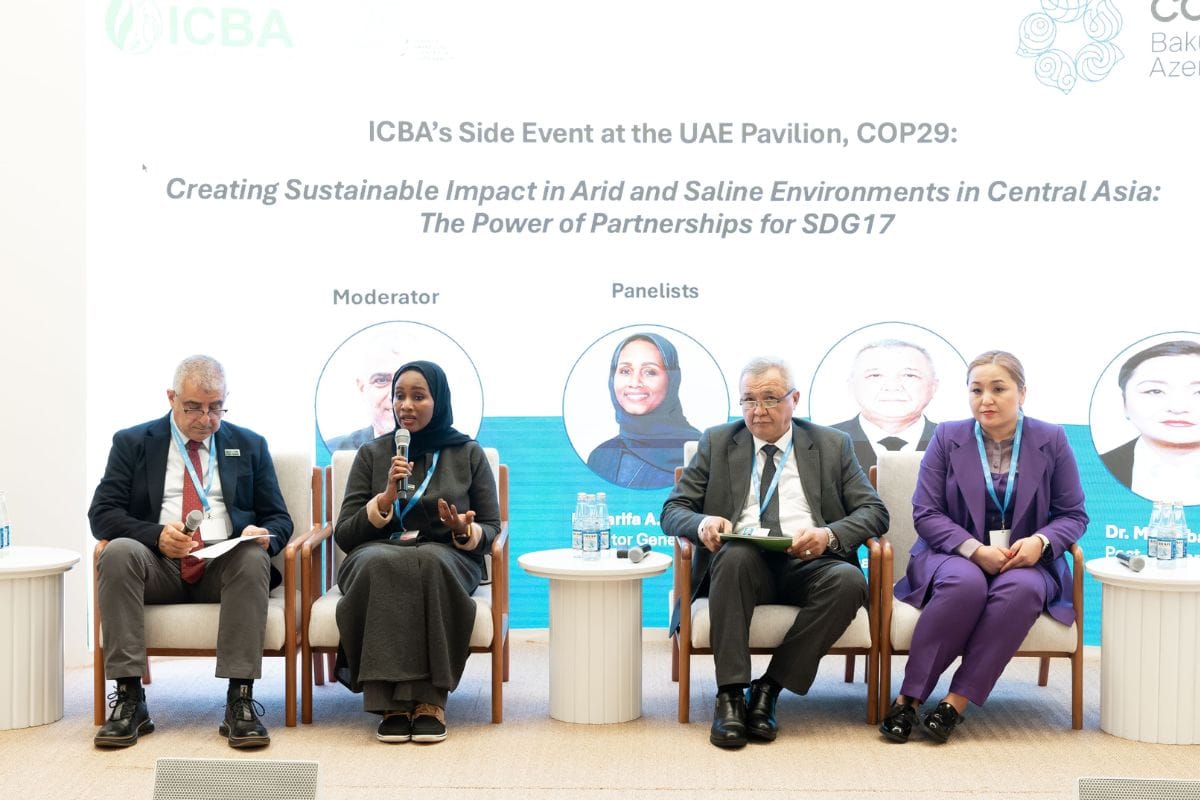UAE Pavilion at COP29 Highlights Water Resilience and Food Security Initiatives

The Vital Interplay of Water and Food Security at COP29: Insights from the UAE Pavilion
As climate challenges intensify globally, the UAE Pavilion at COP29 has emerged as a focal point for discussions surrounding water scarcity and food security—two interlinked issues that underpin sustainable agricultural practices and global ecological balance. The sessions held on Tuesday detailed not only the critical importance of water as a precious resource but also the collaborative actions necessary to confront the impending crises shaped by climate change.
The day commenced with remarks from Abdulla Balalaa, the Assistant Minister of Foreign Affairs for Energy and Sustainability. Balalaa stressed the intrinsic role that water plays in sustaining human dignity and the delicate balance of global ecosystems. His insights set the tone for a discourse centered on the urgent need for cohesive strategies that ensure both water and food security, especially in regions heavily reliant on agriculture for economic stability.
Professor Daouda Ngom, Senegal’s Minister of Environment and Ecological Transition, provided a compelling perspective on international cooperation, particularly through the lens of the impending 2026 UN Water Conference. He emphasized the significance of the partnership between the UAE and Senegal, highlighting how collaborative efforts can mitigate water scarcity while addressing the broader implications of climate change. This partnership exemplifies how bilateral ties can serve as a catalyst for innovative solutions on a global scale.
The sessions featured expert panels that delved into the complexity of water as a cross-sectional issue, integrating aspects of economy, sustainability, and community health. Shaima Gargash from the UAE Ministry of Foreign Affairs articulated the country’s proactive planning efforts to embed water management strategies within broader climate action policies. This approach aligns with recommendations from international experts who discussed innovative models for integrating water resources into existing climate strategies, fostering resilience in the face of ecological uncertainties.
A particularly poignant moment arose during María Fernanda Espinosa’s address, where the former President of the UN General Assembly underscored the multifaceted role of water not merely as a resource but as a critical element in fostering peace and reducing climate vulnerability in affected regions. The linkage between water management and geopolitical stability reflects an understanding that sustainable resource management can ultimately contribute to global security.
Adding an academic dimension, the UAE Universities Climate Network session showcased research and innovations in water systems from esteemed institutions such as Khalifa University and the American University in Dubai. These academic insights are crucial, as they highlight the important role of research in developing cutting-edge solutions to address water scarcity and quality issues. In particular, Dr. Tarifa Al Zaabi from the International Center for Biosaline Agriculture (ICBA) presented on the potential of bio-saline agriculture. This innovative agricultural practice offers promising solutions to counteract challenges posed by water salinity, demonstrating the transformative power of academia in addressing real-world problems.
The day’s proceedings concluded with a significant national statement from Dr. Amna bint Abdullah Al Dahak, UAE Minister of Climate Change and Environment. Dr. Al Dahak reaffirmed the UAE’s steadfast commitment to climate action and sustainable water management. Her remarks not only encapsulated the discussions held throughout the day but also resonated with a broader call for continuity and collaborative efforts geared towards achieving climate resilience. The UAE’s proactive stance serves as a model for other nations grappling with similar environmental challenges.
As the world grapples with the multifaceted implications of climate change, the discussions held at the UAE Pavilion underscore a pivotal realization: addressing water and food security is not merely an environmental imperative, but also a moral obligation that fosters human dignity and global solidarity. The collaborative frameworks and innovative solutions articulated during COP29 may well serve as the bedrock upon which future climate strategies are built, driving international action towards sustainability in an era defined by environmental uncertainty.
In conclusion, the findings and dialogues emerging from this year’s COP29, especially within the UAE Pavilion, affirm that the path to sustainable development is paved with collaborative efforts that transcend national borders. Only through unity and shared strategic vision can the global community hope to navigate the pressing challenges of water scarcity and food security.
Tags:
#UAE #EconomyNews #EnvironmentNews






